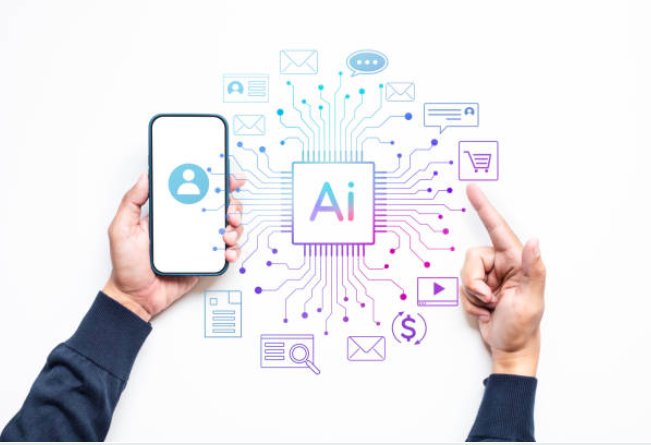By 2024 the use of AI is revolutionizing the way companies promote their products and services, through media platforms by assisting them in strategizing and adapting to evolving consumer preferences. Through analyzing data, predictive AI can identify trends and forecast upcoming developments. In fact, it can identify trending subjects or optimal posting schedules. By using predictive AI, it allows marketers to design advertisements that resonate better with their target audience and appear relevant. There are existing advanced AI tools like IBM Watson and Salesforce Einstein go further, constantly tracking trends and advising on campaign adjustments as audience interests evolve (Taylor, 2024).
How does it work?
The way this works is by employing machine learning algorithms to review engagements like preferences and interactions (like, shares and comments). By examining these patterns, artificial intelligence can forecast audience responses and make personalized recommendations, including optimal posting schedules, high-performing ad formats, and trending topics likely to attract attention (Johnson, 2024). For instance, sophisticated platforms such as IBM Watson and Salesforce Einstein do just that. Indeed, they keep track of trends and propose adjustments to marketing campaigns in response to evolving interests.
What are the benefits?
Furthermore, for marketers, artificial intelligence in social media advertising offers substantial benefits. It allows companies to maximize budget efficiency and achieve better results. Also, by leveraging AI insights, brands can swiftly modify ad content, visuals, and targeting strategies. This allows the brands to stay aligned with new trends or seasonal demands. However, it’s important to recognize that AI’s effectiveness hinges on high-quality data. Also, it can sometimes struggle with sudden shifts in public sentiment (Brown, 2023).
What is next?
Therefore, the same way predictive AI will continue to grow; its role in social media advertising will. It is important to remember that this SEO tool is helping brands make proactive decisions and build stronger connections with their audiences. In the future, brands using these tools will remain agile, make data-driven decisions, and design ads that authentically connect with their target audiences (Smith, 2023).

Bibliography
Smith, J. (2023). Artificial intelligence in social media advertising: Trends and strategies for 2024. Marketing Journal, 45(2), 112-125.
Johnson, L. (2024). Predictive AI and its impact on audience engagement. Journal of Digital Marketing, 12(1), 58-70.
Taylor, R. (2024). Advanced tools for adaptive social media campaigns: IBM Watson and Salesforce Einstein. AI in Marketing, 33(4), 210-224.
Brown, P. (2023). Challenges in AI-driven advertising: The role of data quality and public opinion shifts. Journal of Marketing Analytics, 19(3), 89-103.
